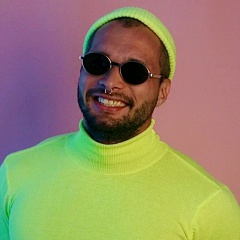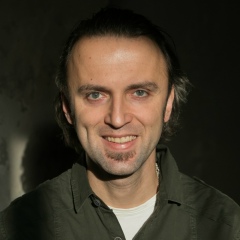Смотрю в чем суть дела Навальных. Например, вот здесь http://www.bbc.co.uk/russian/russia/2014/12/141229_navalny_yves_rocher_background обнаруживаются интересные вещи.
Олег Навальный, руководитель департамента Почты России, предложил "Ив Роше" пользоваться услугами не медленной почты, а более быстрой "Главподписки", фактически принадлежащей ему же с братом. Вряд ли за более низкую цену, правда?
Вспоминается история из личного опыта - однажды некогда удобный и регулярный автобусный маршрут, подвозивший от Балтийского вокзала к главному зданию Университета ближе, чем метро, вдруг стал обслуживаться тем же самым перевозчиком, что "маршрутка", следующая аналогичным курсом. Случайно ли, что после этого автобус стал ходить со значительными перебоями, провоцируя людей садиться в более дорогую, но регулярно подходящую к остановке, маршрутку?
Навальные упорно повторяют, что их действия суть законное предпринимательство. Извините, но я думаю, что это самое настоящее мошенничество - преступление, за которое нужно сажать. С одной лишь частно-моральной оговоркой: не факт, что севшие в условную маршрутку должны считаться пострадавшими, а не соучастниками, способствующими развитию аферы и получающими конкурентное преимущество перед настоящими пострадавшими, оставшимися ждать у моря погоды и добиваться правды на условной остановке.
Однако и формально переплатили именно "Ив Роше", и посыл решения суда логичен - вынужденные ехать на условной маршрутке имеют шанс вернуть свои деньги. Имели бы, если бы дело не было чисто политическим.
***
Я понимаю, что оно насквозь политическое. Но проблема не в том, на что намекнул Олег Навальный - в прецеденте, по которому можно будет пересажать слишком много предпринимателей. Проблема в том, что действительно сотни, тысячи, а может и десятки тысяч условных Ходорковских и Навальных ждут если не своих дел по неуплате налогов и мошенничеству, то хотя бы раскулачивания в виде разового налога на имущество, а дела почему-то заводятся очень избирательно.
Я понимаю и то, что каждое слово против Навального может обернуться подъемом рейтинга Сами-Знаете-Кого. Это очень напоминает историю 96 года, описанную Шендеровичем в "Куклиаде": "каждое очко, отнятое у Ельцина, по закону российской механики переходит к Зюганову". А поскольку пусть и, мягко говоря, неудачный Ельцин на тот момент все-таки олицетворял завоевания демократии и свободы, в отличии Зюганова, грозившего известно чем, решение осторожничать с критикой казалось очевидным. Но и сам Шендорович в последствии признавал - неизвестно, что в итоге хуже, возможное избрание коммунистов в 96-м или то, что случилось в конце 99-го как итог правления Ельцина?
Поэтому ни то, что Навальный сейчас оказался чуть ли не единственным "настоящим оппозиционером в стране", ни то что сделал он для вскрытия сущности системы, не только не красит ни страну, ни оппозицию, но и не может быть ему индульгенцией. И то, что рационально высказывающиеся не в пользу Навального на оппозиционных форумах, часто получают ярлык "кремлебота", лишь подчеркивает это.
***
В той же статье читаем: "В декабре 2007 года Алексей и Олег Навальные создали кипрскую офшорную фирму Alortag Management Limited" - которая потом и стала фактическим владельцем "Главподписки". Простите, это точно материал про Навального, а не то, что обычно Навальный рассказывает про российских чиновников - какие у них офшорные схемы, заграничное имущество и т.д.? Кто же все-таки Навальный - морально-идейный противник таких вещей или неудавшийся конкурент, лопающийся от зависти, что у условных Якуниных цепочка фирм больше?
Наконец возникает ощущение, что Олег Навальный зарекомендовал себя как подозрительный руководитель и чиновник, умудрившись занимая руководящий пост в Почте России увести оттуда одного из крупнейших клиентов, сделав улучшение работы почты вне своих интересов - можно ли таким людям вообще доверять страну?
***
P.S. Особо удивил пассаж Олега Навального по поводу посредников. Нет, я, конечно, понимаю, что совсем без посредников пока невозможно, что магазины доставляющие товар от продавца потребителю и предоставляющие последнему площадку для выбора, просто необходимы. Но ведь нельзя допускать ни чтобы посредник диктовал условия производителям и навязывал выбор потребителям, ни чтобы значительно увеличивал цену продукта, ни утаивал информацию, ни, тем более, чтобы значительная часть бизнеса в стране была спекулятивной - разве так можно развить конкурентную экономику, производство? Это, как и сомнительная законность значительной доли предпринимательской деятельности в стране, тоже проблема, которую нужно решать. Конечно, не в рамках избирательного правосудия.
#Навальный #ИвРоше
Олег Навальный, руководитель департамента Почты России, предложил "Ив Роше" пользоваться услугами не медленной почты, а более быстрой "Главподписки", фактически принадлежащей ему же с братом. Вряд ли за более низкую цену, правда?
Вспоминается история из личного опыта - однажды некогда удобный и регулярный автобусный маршрут, подвозивший от Балтийского вокзала к главному зданию Университета ближе, чем метро, вдруг стал обслуживаться тем же самым перевозчиком, что "маршрутка", следующая аналогичным курсом. Случайно ли, что после этого автобус стал ходить со значительными перебоями, провоцируя людей садиться в более дорогую, но регулярно подходящую к остановке, маршрутку?
Навальные упорно повторяют, что их действия суть законное предпринимательство. Извините, но я думаю, что это самое настоящее мошенничество - преступление, за которое нужно сажать. С одной лишь частно-моральной оговоркой: не факт, что севшие в условную маршрутку должны считаться пострадавшими, а не соучастниками, способствующими развитию аферы и получающими конкурентное преимущество перед настоящими пострадавшими, оставшимися ждать у моря погоды и добиваться правды на условной остановке.
Однако и формально переплатили именно "Ив Роше", и посыл решения суда логичен - вынужденные ехать на условной маршрутке имеют шанс вернуть свои деньги. Имели бы, если бы дело не было чисто политическим.
***
Я понимаю, что оно насквозь политическое. Но проблема не в том, на что намекнул Олег Навальный - в прецеденте, по которому можно будет пересажать слишком много предпринимателей. Проблема в том, что действительно сотни, тысячи, а может и десятки тысяч условных Ходорковских и Навальных ждут если не своих дел по неуплате налогов и мошенничеству, то хотя бы раскулачивания в виде разового налога на имущество, а дела почему-то заводятся очень избирательно.
Я понимаю и то, что каждое слово против Навального может обернуться подъемом рейтинга Сами-Знаете-Кого. Это очень напоминает историю 96 года, описанную Шендеровичем в "Куклиаде": "каждое очко, отнятое у Ельцина, по закону российской механики переходит к Зюганову". А поскольку пусть и, мягко говоря, неудачный Ельцин на тот момент все-таки олицетворял завоевания демократии и свободы, в отличии Зюганова, грозившего известно чем, решение осторожничать с критикой казалось очевидным. Но и сам Шендорович в последствии признавал - неизвестно, что в итоге хуже, возможное избрание коммунистов в 96-м или то, что случилось в конце 99-го как итог правления Ельцина?
Поэтому ни то, что Навальный сейчас оказался чуть ли не единственным "настоящим оппозиционером в стране", ни то что сделал он для вскрытия сущности системы, не только не красит ни страну, ни оппозицию, но и не может быть ему индульгенцией. И то, что рационально высказывающиеся не в пользу Навального на оппозиционных форумах, часто получают ярлык "кремлебота", лишь подчеркивает это.
***
В той же статье читаем: "В декабре 2007 года Алексей и Олег Навальные создали кипрскую офшорную фирму Alortag Management Limited" - которая потом и стала фактическим владельцем "Главподписки". Простите, это точно материал про Навального, а не то, что обычно Навальный рассказывает про российских чиновников - какие у них офшорные схемы, заграничное имущество и т.д.? Кто же все-таки Навальный - морально-идейный противник таких вещей или неудавшийся конкурент, лопающийся от зависти, что у условных Якуниных цепочка фирм больше?
Наконец возникает ощущение, что Олег Навальный зарекомендовал себя как подозрительный руководитель и чиновник, умудрившись занимая руководящий пост в Почте России увести оттуда одного из крупнейших клиентов, сделав улучшение работы почты вне своих интересов - можно ли таким людям вообще доверять страну?
***
P.S. Особо удивил пассаж Олега Навального по поводу посредников. Нет, я, конечно, понимаю, что совсем без посредников пока невозможно, что магазины доставляющие товар от продавца потребителю и предоставляющие последнему площадку для выбора, просто необходимы. Но ведь нельзя допускать ни чтобы посредник диктовал условия производителям и навязывал выбор потребителям, ни чтобы значительно увеличивал цену продукта, ни утаивал информацию, ни, тем более, чтобы значительная часть бизнеса в стране была спекулятивной - разве так можно развить конкурентную экономику, производство? Это, как и сомнительная законность значительной доли предпринимательской деятельности в стране, тоже проблема, которую нужно решать. Конечно, не в рамках избирательного правосудия.
#Навальный #ИвРоше
I look at the essence of Navalny’s business. For example, here http://www.bbc.co.uk/russian/russia/2014/12/141229_navalny_yves_rocher_background interesting things are discovered.
Oleg Navalny, head of the Russian Post Department, suggested that Yves Rocher use the services not of slow mail, but of a faster Main Subscription, which actually belongs to him with his brother. Hardly for a lower price, right?
I recall a story from personal experience - once a once convenient and regular bus route that drove from the Baltic Station to the main building of the University closer than the metro, it suddenly began to be served by the same carrier as the minibus following a similar course. Is it a coincidence that after that the bus began to walk with significant interruptions, provoking people to board a more expensive minibus, which was regularly coming to a stop?
Bulk persistently repeat that their actions are legitimate business. Sorry, but I think this is a real fraud - a crime for which you need to be jailed. With one private moral caveat: it’s not the fact that those who got on a conditional minibus should be considered injured, and not accomplices contributing to the development of a scam and gaining a competitive advantage over real victims who have to wait for the weather by the sea and seek the truth at a conditional stop.
However, “Yves Rocher” was formally overpaid, and the message of the court decision is logical - those who have to take a conditional minibus have a chance to get their money back. They would have, if the matter was not purely political.
***
I understand that it is thoroughly political. But the problem is not what Oleg Navalny hinted at - in the precedent by which too many entrepreneurs can be transplanted. The problem is that indeed, hundreds, thousands, and maybe tens of thousands of conditional Khodorkovsky and Navalny are waiting if not for their cases of tax evasion and fraud, then at least dispossession in the form of a one-time property tax, and for some reason, things are very selective.
I also understand that every word against Navalny can result in a rise in the rating of Know-Who-Who. This is very reminiscent of the story of 96 described by Shenderovich in Kukliada: "every point taken from Yeltsin, according to the law of Russian mechanics, goes to Zyuganov." And since let, to put it mildly, the unsuccessful Yeltsin at that time still personify the gains of democracy and freedom, unlike Zyuganov, who threatened to know what, the decision to be careful with criticism seemed obvious. But later Shendorovich himself admitted - it is not known what is worse, the possible election of the Communists in the 96th or what happened at the end of the 99th as a result of Yeltsin’s reign?
Therefore, neither the fact that Navalny now turned out to be almost the only "real oppositionist in the country", nor what he did to reveal the essence of the system, not only does not paint the country or the opposition, but also cannot be indulgence for him. And the fact that rationally speaking out in favor of Navalny in opposition forums often gets the label "Kremlin bot" only emphasizes this.
***
In the same article, we read: “In December 2007, Alexey and Oleg Navalny created the Cyprus offshore company Alortag Management Limited,” which later became the actual owner of Glavpodpiska. Sorry, this is exactly material about Navalny, and not what Navalny usually tells about Russian officials - what are their offshore schemes, overseas property, etc.? Who is Navalny, a moral and ideological opponent of such things or a failed competitor bursting with envy that conditional Yakunins have a larger chain of firms?
Finally, there is a feeling that Oleg Navalny has established himself as a suspicious leader and official, having managed to take a senior position in the Russian Post and take one of the largest customers out of there, having improved the work of mail outside his interests - can such people even be trusted in the country?
***
P.S. Particularly surprised passage Oleg Navalny about intermediaries. No, of course, I understand that without intermediaries it is not yet possible that stores delivering goods from the seller to the consumer and providing the latter with a platform for selection are simply necessary. But you can’t allow the intermediary to dictate the terms to manufacturers and impose choices on consumers, not to significantly increase the price of the product, not to conceal information, and moreover, to make a significant part of the business in the country speculative - is it possible to develop a competitive economy and production? This, like the dubious legality of a significant share of entrepreneurial activity in the country, is also a problem that needs to be addressed. Of course, not within the framework of selective justice.
# Bulk # IvRoche
Oleg Navalny, head of the Russian Post Department, suggested that Yves Rocher use the services not of slow mail, but of a faster Main Subscription, which actually belongs to him with his brother. Hardly for a lower price, right?
I recall a story from personal experience - once a once convenient and regular bus route that drove from the Baltic Station to the main building of the University closer than the metro, it suddenly began to be served by the same carrier as the minibus following a similar course. Is it a coincidence that after that the bus began to walk with significant interruptions, provoking people to board a more expensive minibus, which was regularly coming to a stop?
Bulk persistently repeat that their actions are legitimate business. Sorry, but I think this is a real fraud - a crime for which you need to be jailed. With one private moral caveat: it’s not the fact that those who got on a conditional minibus should be considered injured, and not accomplices contributing to the development of a scam and gaining a competitive advantage over real victims who have to wait for the weather by the sea and seek the truth at a conditional stop.
However, “Yves Rocher” was formally overpaid, and the message of the court decision is logical - those who have to take a conditional minibus have a chance to get their money back. They would have, if the matter was not purely political.
***
I understand that it is thoroughly political. But the problem is not what Oleg Navalny hinted at - in the precedent by which too many entrepreneurs can be transplanted. The problem is that indeed, hundreds, thousands, and maybe tens of thousands of conditional Khodorkovsky and Navalny are waiting if not for their cases of tax evasion and fraud, then at least dispossession in the form of a one-time property tax, and for some reason, things are very selective.
I also understand that every word against Navalny can result in a rise in the rating of Know-Who-Who. This is very reminiscent of the story of 96 described by Shenderovich in Kukliada: "every point taken from Yeltsin, according to the law of Russian mechanics, goes to Zyuganov." And since let, to put it mildly, the unsuccessful Yeltsin at that time still personify the gains of democracy and freedom, unlike Zyuganov, who threatened to know what, the decision to be careful with criticism seemed obvious. But later Shendorovich himself admitted - it is not known what is worse, the possible election of the Communists in the 96th or what happened at the end of the 99th as a result of Yeltsin’s reign?
Therefore, neither the fact that Navalny now turned out to be almost the only "real oppositionist in the country", nor what he did to reveal the essence of the system, not only does not paint the country or the opposition, but also cannot be indulgence for him. And the fact that rationally speaking out in favor of Navalny in opposition forums often gets the label "Kremlin bot" only emphasizes this.
***
In the same article, we read: “In December 2007, Alexey and Oleg Navalny created the Cyprus offshore company Alortag Management Limited,” which later became the actual owner of Glavpodpiska. Sorry, this is exactly material about Navalny, and not what Navalny usually tells about Russian officials - what are their offshore schemes, overseas property, etc.? Who is Navalny, a moral and ideological opponent of such things or a failed competitor bursting with envy that conditional Yakunins have a larger chain of firms?
Finally, there is a feeling that Oleg Navalny has established himself as a suspicious leader and official, having managed to take a senior position in the Russian Post and take one of the largest customers out of there, having improved the work of mail outside his interests - can such people even be trusted in the country?
***
P.S. Particularly surprised passage Oleg Navalny about intermediaries. No, of course, I understand that without intermediaries it is not yet possible that stores delivering goods from the seller to the consumer and providing the latter with a platform for selection are simply necessary. But you can’t allow the intermediary to dictate the terms to manufacturers and impose choices on consumers, not to significantly increase the price of the product, not to conceal information, and moreover, to make a significant part of the business in the country speculative - is it possible to develop a competitive economy and production? This, like the dubious legality of a significant share of entrepreneurial activity in the country, is also a problem that needs to be addressed. Of course, not within the framework of selective justice.
# Bulk # IvRoche
У записи 3 лайков,
0 репостов.
0 репостов.
Эту запись оставил(а) на своей стене Nikita Lovyagin
























![Олег Яковлев [ведущий] Олег Яковлев [ведущий]](https://sun9-51.vkuserphoto.ru/s/v1/ig1/AeDXSOOHI4vVn2yceds1BO9Ur99Yn-1AmUX8_8iPPHzTWH2c9wRsg-og3Xz4Bvh4WfngNz-m.jpg?quality=96&crop=64,90,463,463&as=32x32,48x48,72x72,108x108,160x160,240x240,360x360&ava=1&cs=200x200)